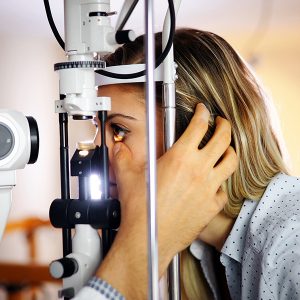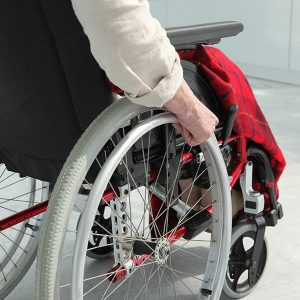Who can participate in the PA Medical Marjiuana Program?
Pennsylvania residents with an approved serious medical condition listed below can be certified by a doctor to participate in the PA Medical Marijuana Program. If you believe you have an approved serious medical condition, contact the CCC team by calling 888-316-9085 or click here to register online. Our consultants will confidentially discuss any concerns or questions you may have about the PA Medical Marijuana Program and how our certification process works. We will review your medical records and pre-qualify you for free. Then you’ll set up an appointment either online or virtually with one of our cannabis medicine physicians.
Amyotrophic Lateral Sclerosis (ALS)
The exact cause for ALS is ambiguous, but experts theorize that environmental and genetic factors may be contributing to the deterioration of motor neurons.
Anxiety Disorders
People with Anxiety Disorders frequently have intense, excessive and persistent worry and fear about everyday situations. Often, anxiety disorders involve repeated episodes of panic attacks […]
Autism Spectrum Disorder (ASD)
Autism Spectrum Disorder (ASD) is a complex developmental condition that involves persistent challenges in social interaction, speech and nonverbal communication, and restricted/repetitive behaviors.
Cancer
Cancer is the uncontrolled growth of abnormal cells in the body and often develops when the body’s normal control mechanisms stop working. Old cells do not die and instead grow out of control, forming new, abnormal cells.
Chronic Hepatitis C
Hepatitis C is a viral infection that causes liver inflammation, sometimes leading to serious liver damage. The hepatitis C virus (HCV) spreads through contaminated blood.
Chronic Pain
Chronic Pain is pain that carries on for longer than 12 weeks despite medication or treatment. Most people get back to normal after pain following an injury or operation, but sometimes the pain can carry on for longer periods of time.
Crohn’s Disease
Crohn's Disease is a type of inflammatory bowel disease (IBD). It causes inflammation of your digestive tract, which can lead to abdominal pain, severe diarrhea, fatigue, weight loss and malnutrition.
Damage to the Nervous Tissue of the Spinal Cord with Objective Neurological Indication of Intractable Spasticity
Spinal cord injuries can result in damaging and often unbearable side effects for patients. Injuries in this area of the body often result in a change, either temporary or permanent, to healthy motor or sensory function.
Epilepsy
Epilepsy is a neurological disorder in which brain activity becomes abnormal, causing seizures or periods of unusual behavior, sensations, and sometimes loss of awareness.
Glaucoma
Glaucoma is a group of eye conditions that damage the optic nerve, the health of which is vital for good vision. This damage is often caused by an abnormally high pressure in your eye.
HIV/AIDS
Acquired Immunodeficiency Syndrome (AIDS) is a chronic, potentially life-threatening condition caused by the human immunodeficiency virus (HIV). By damaging your immune system, HIV interferes with your body's ability to fight infection and disease.
Huntington’s Disease
Huntington's disease is a rare, inherited disease that causes the progressive breakdown (degeneration) of nerve cells in the brain. It affects a person's functional abilities and usually results in movement, cognative, and psychiatric disorders.
Inflammatory Bowel Disease (IBD)
Inflammatory Bowel Disease (IBD) is an umbrella term used to describe disorders that involve chronic inflammation of your digestive tract.
Intractable Seizures
Intractable Seizures are persistent sudden, uncontrolled electrical disturbance in the brain. It can cause changes in your behavior, movements or feelings, and in levels of consciousness.
Multiple Sclerosis (MS)
Multiple Sclerosis (MS) is a potentially disabling disease of the brain and spinal cord. With MS, the immune system attacks the protective sheath that covers nerve fibers and causes communication problems between your brain and the rest of your body.
Neurodegenerative Diseases
Tourette's Syndrome is a disorder that involves repetitive movements or unwanted sounds (tics) that can't be easily controlled. Tics typically show up between ages 2 and 15, with the average being around 6 years of age.
Neuropathies
Neuropathies, a result of damage to the nerves outside of the brain and spinal cord, often causes weakness, numbness and pain, usually in your hands and feet. It can also affect other areas of your body.
Opioid Use Disorder
Opioid dependence causes withdrawal symptoms, which makes it difficult to stop taking them. Opioid Use Disorder occurs when dependence interferes with daily life.
Parkinson’s Disease
Parkinson's Disease is a progressive nervous system disorder that affects movement. Symptoms start gradually, sometimes starting with a barely noticeable tremor in just one hand.
Post-Traumatic Stress Disorder (PTSD)
Post-Traumatic Stress Disorder (PTSD) is a mental health condition that's triggered by a terrifying event. Symptoms may include flashbacks, nightmares and severe anxiety, as well as uncontrollable thoughts about the event.
Sickle Cell Anemia
Sickle cell anemia is one of a group of disorders known as sickle cell disease. Sickle cell anemia is an inherited red blood cell disorder in which there aren't enough healthy red blood cells to carry oxygen throughout your body.
Terminal Illness
A Terminal Illness is a disease or condition which can’t be cured and is likely to lead to someone’s death. It’s sometimes called a life-limiting illness.
Tourette’s Syndrome
Tourette's Syndrome is a disorder that involves repetitive movements or unwanted sounds (tics) that can't be easily controlled. Tics typically show up between ages 2 and 15, with the average being around 6 years of age.






















